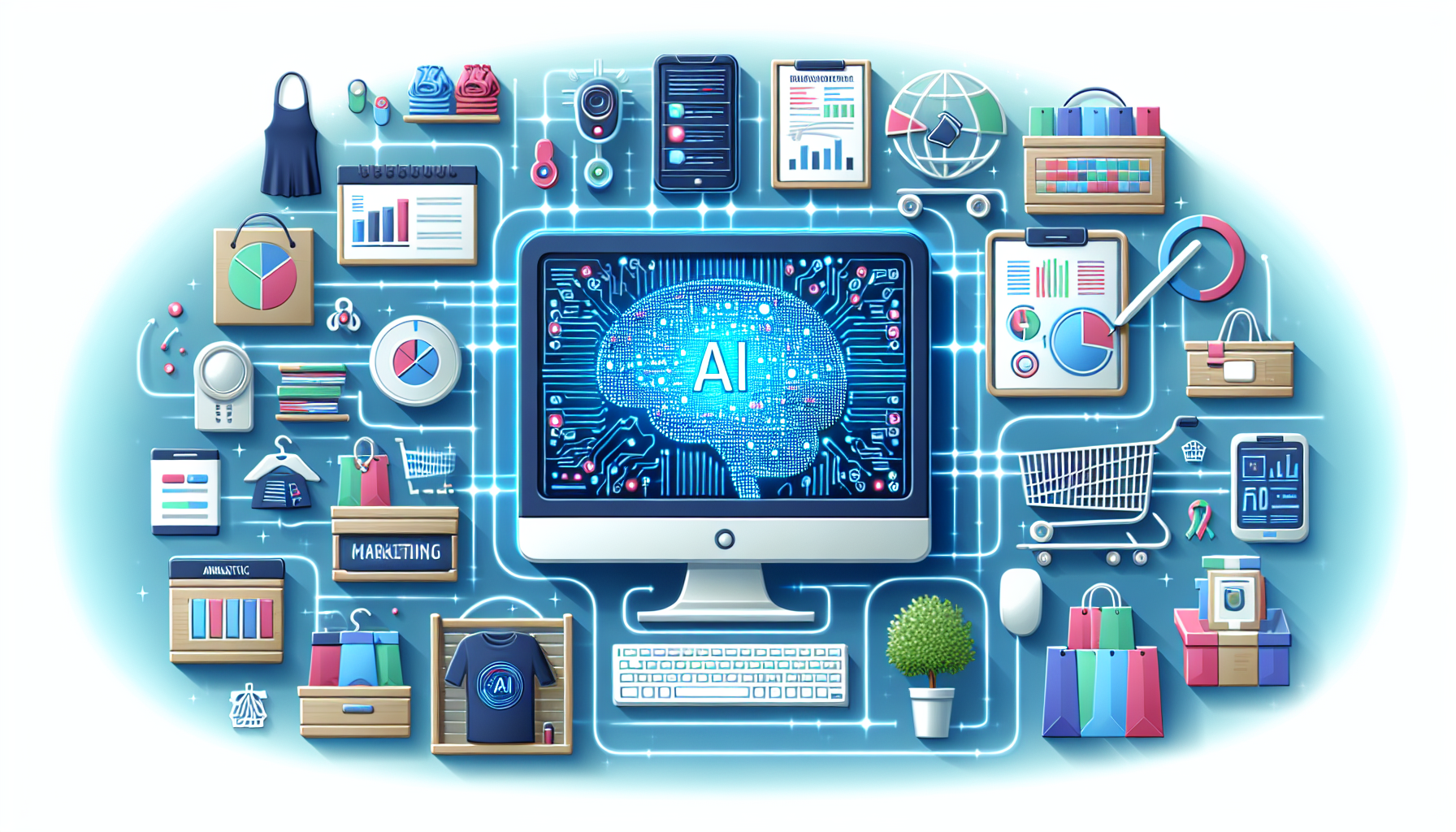The Impact of AI on Marketing Strategies for Retailers
Understanding AI in Retail Marketing
Artificial Intelligence (AI) is revolutionizing marketing strategies in the retail sector, enabling brands to deliver more personalized experiences and streamline operations. Retailers are increasingly leveraging AI technologies such as machine learning, natural language processing, and predictive analytics to enhance customer interactions and improve decision-making processes.
Personalization Through Data Analytics
One of the most significant impacts of AI on retail marketing is the ability to personalize customer experiences. Retailers utilize AI-driven data analytics to gain insights into consumer behavior, preferences, and buying patterns. By analyzing vast amounts of data, AI can identify trends and segment audiences effectively, enabling retailers to craft targeted marketing campaigns.
For instance, Amazon employs sophisticated algorithms to analyze customer purchases and browsing history, recommending products tailored to individual preferences. This level of personalization not only improves customer satisfaction but also increases conversion rates and customer loyalty.
Chatbots and Customer Engagement
AI-powered chatbots are increasingly becoming a staple in retail marketing. These digital assistants can interact with customers in real time, answering queries, providing product recommendations, and assisting with the purchase journey. The ability of chatbots to operate 24/7 enhances customer engagement and supports retailers in maintaining a consistent presence in the digital marketplace.
For example, H&M utilizes chatbots on its platforms, guiding customers through outfit selection based on personal style and preferences. By offering interactive assistance, retailers can create a more engaging shopping experience, ultimately driving sales.
Enhanced Targeting and Advertising
AI is transforming advertising strategies by enabling more precise targeting. Retailers can use AI algorithms to analyze user behavior and preferences, allowing them to deliver ads that resonate with specific audiences. This targeted approach not only maximizes ad spend efficiency but also increases the likelihood of conversion.
AI technologies, such as programmatic advertising, automate the buying and selling of ad space in real time. This allows retailers to reach their desired audience at the right moment with the right message, enhancing the overall effectiveness of marketing campaigns.
Predictive Analytics for Inventory Management
Retailers are also harnessing predictive analytics powered by AI to optimize inventory management. By analyzing historical sales data, seasonal trends, and external factors like weather patterns, AI can forecast inventory needs more accurately. This enables retailers to maintain optimal stock levels, reducing both excess inventory and stockouts.
The integration of AI in inventory management not only improves operational efficiency but also enhances the customer experience by ensuring that products are available when customers want them. For example, Walmart utilizes AI to predict demand, thereby optimizing its supply chain and minimizing costs.
Dynamic Pricing Strategies
AI enables retailers to implement dynamic pricing strategies that adjust prices in real-time based on various factors, including demand fluctuations, competitor pricing, and customer behavior. This approach ensures that retailers remain competitive while maximizing profit margins.
Retail giants like Target leverage AI to analyze market trends and customer purchasing behavior, adjusting prices to match market demand. Such adaptive pricing not only maximizes sales but also enhances the overall shopping experience, as customers feel they are receiving the best possible prices.
AI-Driven Content Creation
AI technologies extend beyond data analysis and chatbots; they are also redefining content creation in retail marketing. Automated content generation tools can create product descriptions, blog posts, and marketing materials tailored to specific audiences based on data insights.
Retailers can use AI-powered tools to analyze which types of content resonate most with their customers. For instance, Sephora employs AI to create personalized email campaigns and product recommendations that align with individual customer preferences, ultimately driving sales and engagement.
Social Media Insights and Management
Social media platforms are crucial marketing channels for retailers. AI tools can analyze social media trends, customer sentiment, and engagement levels, providing insights that inform marketing strategies. By leveraging social listening tools powered by AI, retailers can identify emerging trends and adjust their strategies accordingly.
Furthermore, AI can automate social media management by scheduling posts, responding to comments, and analyzing engagement metrics. Retailers like Nike are capitalizing on AI-driven social media strategies by creating targeted campaigns that align with their brand message while interacting with customers in meaningful ways.
Challenges of Implementing AI
Despite the many benefits of incorporating AI into retail marketing strategies, challenges do exist. Retailers may face hurdles such as data privacy concerns, the complexity of integrating AI technologies with existing systems, and potential resistance from employees and customers.
Data security is a major challenge, as retailers must ensure compliance with regulations like GDPR while still effectively utilizing consumer data for AI analytics. Moreover, the initial investment in AI technology can be significant, and retailers need to consider long-term ROI when embarking on AI implementation.
The Future of AI in Retail Marketing
Looking ahead, the role of AI in retail marketing is expected to grow even more significant. As technologies advance, retailers will continue to innovate their marketing strategies, further enhancing personalization, customer engagement, and operational efficiency.
Emerging technologies such as augmented reality (AR) and virtual reality (VR) are likely to integrate with AI, creating immersive shopping experiences that drive customer engagement. Additionally, as AI systems become more sophisticated, they will enable hyper-personalized marketing, where every customer interaction is tailored to individual preferences and behaviors.
Conclusion
AI’s impact on marketing strategies for retailers is profound and multifaceted. By harnessing AI-driven technologies, retailers can create more personalized experiences, enhance customer engagement, optimize inventory, and implement dynamic pricing strategies that keep them competitive in a rapidly changing market. As the retail landscape continues to evolve, embracing AI will be essential for brands looking to thrive in the digital age.


